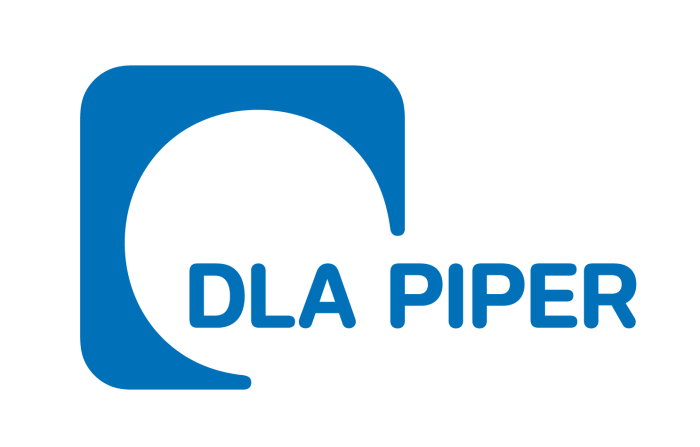Legal & Fiscal Business Checklist


Are you meeting your governance obligations?
Proper Corporate Governance is essential, with serious consequences for organisations not systematically addressing governance obligations.
Governance is directed at protecting an organisation’s assets, stakeholders and reputation. The basic principles of corporate governance are accountability, transparency, fairness, and responsibility. Achieving an effective corporate governance framework involves risk management, environmental awareness, ethical behaviour, strategic planning and an equitable distribution of benefits.
You will find essential questions for your business to consider below.
Key Governance Considerations
Do you understand and comply with a wide range of laws and regulations, including those covering mining and safety, income tax and indirect taxes, corporations, foreign investment, banking and foreign exchange, environment, employment, insurance, etc? Have you checked whether foreign investment laws require a minimum issued capital, approvals of related party contracts, reporting, local employment and training, or other obligations for companies with foreign ownership? Are you complying with local content rules? Are there restrictions on foreign contractors, consultants or expatriates working in the country? Can local content rules prevent services being provided by employees of related companies by mandating certain services be provided by local entities?
Are on-shore and off-shore FX bank accounts and FX transactions allowed, with or without approval? Is there a requirement to repatriate export proceeds, and if so, within what timeframe, and in what currency? What documentation is required to obtain approval to repay loans etc to overseas parties, where such approval is required? How can you minimise currency exchange losses on funds transfers in and out of the country?
What information must be provided when applying for an exploration or mining permit? How long will the application process take, and have you allowed time for baseline environmental studies and community consultation if they are required? Do your feasibility study reports have to be signed off by a local expert, and under which mining resource reporting code? Can you meet the timeline set in the licence for exploration, construction, or commencement of production, and what are the consequences of not doing so? Is the government entitled to project equity, and if so, how is that achieved? How long does your licence have left to run, and what renewals and size reductions will be required? What operating permits do you and your contractors require?
Do foreign investment or mining laws require training of locals and localisation plans with reporting obligations, expatriate quotas etc? Are expatriates subject to local employment laws, notwithstanding written contracts, and what extra obligations does that place on the employer? What are the procedures for obtaining and renewing expatriate work permits? Do you know when it is mandatory for someone employed under a fixed term contract to be offered a permanent contract, and the consequences of the change? Are all staff receiving entitlements provided for by law or under awards or enterprise agreements? Do you know what your employees are entitled to in the event of termination or redundancy? Do you have an acceptable documented employee disciplinary procedure?
Do your employees have procedures and training to recognise and deal with attempts at bribery and corruption? Do you have policies and rigorous record-keeping for facilitation payments and gifts, by and to employees? Do you educate contractors and suppliers on bribery and corruption laws, gifts to employees, etc and require them to sign off on compliance in contracts? Are you across host country laws which prohibit bribery of public officials and extra-territorial anti-bribery laws enacted by Australia, the United States, the United Kingdom and Canada which criminalise the bribery of foreign public officials and in some cases prohibit facilitation payments?
What additional community-related obligations will you have to observe during the transition from exploration to mining to comply with the law, international treaties and financier requirements? Are you meeting the Equator Principles guidelines? What other standards and guidelines do your investors and financiers expect you to meet? Do you understand the obligations on Australian companies operating overseas with respect to human rights? Has your company signed on to the Voluntary Principles on Security and Human Rights? Does your company have an effective community complaints mechanism? Do you have effective oversight, training, and reporting processes in place to ensure your company is not complicit in abuses of human rights? Do you have processes to audit supply chains for evidence of modern slavery? Do your compensation and housing relocation practices meet local legislative requirements and international standards?
Can a fiscal stabilisation agreement be secured, is there a minimum investment threshold above which it is available, does it have to be negotiated, does the government expect trade-off benefits, and does it require parliamentary approval or similar to be effective?
Are you complying with local and international standards on transfer pricing, to be able to defend actions from tax authorities? What documentation will your tax authority ask for to support your claim for tax deductions on related party transactions? Can the tax authority impute or increase interest or service charge margins on related party transactions if there is a revenue advantage to the state? Does the tax authority consider transfer pricing of related party transactions of group companies within the country in addition to cross-border transactions?
When structuring loan and capital financing, have you considered whether interest will be deductible, thin capitalisation deductibility limits, quasi equity concepts, withholding taxes, etc? Do you operate in a jurisdiction where interest payments over the thin capitalisation limit are treated as dividends? What double tax treaties apply in the jurisdiction, and are you contracting in the right entity name and with a party from the most appropriate country? Could you be exposed to withholding tax on goods or equipment purchases if contracts aren’t constructed properly? Do you have loan agreements and services or management agreements in place, and structured after considering withholding taxes and transfer pricing requirements? Does a withholding tax liability crystallise when an obligation is due, rather than paid?
For related party transactions, have you maintained enough evidence to justify rates charged under transfer pricing laws, including evidence of work completed if services, and evidence that charges are on acceptable arm’s length terms? Could the tax authority impute an inter-group interest charge or services charge to generate a tax liability, even when you made no charge, and what can you do to reduce the risk? If you are asserting that some loans are quasi-equity, what evidence do you have? Is a waiver of debt taxable to the debtor, and have joint venture or option agreements been structured to avoid unintended consequences?
What legislative restrictions limit tax deductibility of expenses, such as thin capitalisation, project ring fencing, limitations on deductibility of financial or other expenses?
Is it possible to present financial statements and lodge tax returns denominated in a foreign currency, and should you consider that? Will you be allowed a tax deduction for royalty payments to the vendor of a mining property, notwithstanding the requirement to pay withholding tax on such payments?
Can changes in underlying ownership lead to a loss of carried forward losses, unrecouped bad debts and financial costs, etc? Can changes in underlying ownership, including those originating outside the country, lead to a deemed disposal of assets and liabilities for tax purposes, and what are tripping points and the tax consequences? Does the tax authority have the power to deem that dividends have been paid if accumulated profits aren’t distributed in time?
Does the jurisdiction levy Capital Gains Taxes and have the implications been fully assessed for your activities?
Are you contracting in the right entity name after considering VAT, customs duty and withholding tax liabilities? Have you structured your farm-in joint venture arrangement to prevent unnecessary VAT and income tax exposures and to be able to claim expenditure if development occurs? Do you have an exposure to reverse VAT for services provided off-shore?
Do you know what customs charges will be payable, even if imports are customs-exempt or at a concessional rate? Do customs and VAT exemptions need to be negotiated and approved, or are they legislated? Is there a project-specific or mining industry-specific list of items receiving concessional customs or VAT treatment? Do you know what records and registers you are required to keep to ensure your customs or VAT exemptions aren’t overturned in a tax audit, with resultant penalties? If imports are customs or VAT exempt, could purchasing via a local agent for the overseas manufacturer, or taking delivery from the manufacturer at the mine site rather than the port, jeopardise the exemption? Are there items, such as furniture, passenger vehicles, vehicle repairs, mine catering, or other outsourced activities, that do not qualify for VAT exemption?
Are you VAT exempt, or is VAT recoverable, during exploration, development and/or production, and if recoverable, what is the process and timeline? What items aren’t VAT exempt, during exploration, development and production? Is a VAT exemption or right to a VAT refund only available on export production related activities, and is there a requirement to repatriate export sales proceeds to qualify?
Do you ensure equipment imported duty/VAT exempt by a contractor under your company name using a temporary import regime is re-exported or properly assigned to another party on completion of the contract? Is it worth importing vehicles etc under a temporary import regime if they will be held for their useful life, given the administrative obligations and that duty may be payable eventually unless they are re-exported?
What registration or other requirements are required for contractors to be entitled to a VAT refund or exemption, if such concession is available? What are the ramifications if a mining company is VAT exempt but its contractors and suppliers aren’t entitled to VAT relief or a VAT refund?
In the event that the government is unable to pay valid VAT refunds owed to the company is there a legal mechanism in place that will allow offsets against other taxes payable by the company e.g. PAYE, and other employee related taxes?
What should (does) your compliance system cover? Are legal and community commitments and obligations documented, and performance against commitments tracked and reported? Do you update your compliance monitoring system to capture new obligations on changes of legislation or regulations, licence issues, etc? Does your compliance monitoring system allocate responsibility for obligations and provide timely notice of deadlines?
Are you meeting all legal obligations in relation to your community, human rights and transparency reporting? Do you have a reporting routine – a program of data collection, record-keeping and information-sharing that allows you to easily monitor and disclose your performance on an ongoing basis?
What legislation places the onus on you to seek government approvals, and to report to government? Are you complying with all government reporting requirements, including those required of minerals licence holders? Do you require approval to mortgage mining assets? Are you required to seek approval for or notify of arrangements potentially affecting licence ownership rights, changes in ownership of minerals licences or licence owning companies, including changes in the off-shore ownership chain?
Are there sales taxes or “levies” applying on purchases of goods and services? What stamp duty, registration fees, notary fees, etc apply to share issues or transfers, loan or security documents, property transfers, etc. What application costs, licence fees, ground rental charges, etc apply to minerals licences?
What government royalty rates apply to the extraction and sale of minerals? What is the taxing point for royalties (sale shipment, etc)? How is the taxable value set for royalty purposes (sale price, reference price, etc), and how are forward sales treated?
Does the law specify the level of community contributions required by mining companies, and how is the contribution calculated and paid? What additional community expenditure have you budgeted, over and above the legal requirement?
What equity will the Government take in the project, or project company, and does it pay for the equity? Can the Government apply additional taxes such as a super-profits tax?
Do you have the right structure for funding a joint venture or an option to purchase? Do you have the best ownership structure to protect your investment and avoid tax traps? Will an in-country ownership chain lead to multiple dividend withholding tax exposures? Have you considered bilateral investment treaties and double tax treaties when structuring? Are there minimum capital requirements for foreign owned companies or mineral licence owners? Have you obtained necessary approvals, registered shareholdings and loans, and paid applicable duties?
Do you know what restrictions there are on claiming tax deductions for financing costs, and what exposures there are if loans aren’t structured and documented correctly? Have you considered the best debt:equity split for financing after considering tax consequences? Have you considered whether it is better to arrange bank finance at the project company level rather than corporate level given thin capitalisation constraints? What currency should inter-group and external loans be denominated in?
Do you need to declare the source of funds (share capital or loans) when remitting funds to the country to avoid heavy exchange rate charges when repatriating funds later? What approvals or notifications are required for loans (particularly if FX denominated) or charges over minerals licences? Are foreign currency bank accounts and FX transactions permitted, and what approvals and declarations are required? Can a related party pay foreign creditors without creating cash repatriation or other issues later? Have you documented loans and transactions to facilitate future repatriation of funds simply and cost effectively?


Want to learn more about governance?
If the questions have highlighted gaps in your governance or left you thinking you need to learn a bit more, you can dig a bit deeper by:
1. Contact an AAMEG member
2. Check out all resources
More business checklists...
Members that operate in the Governance space











